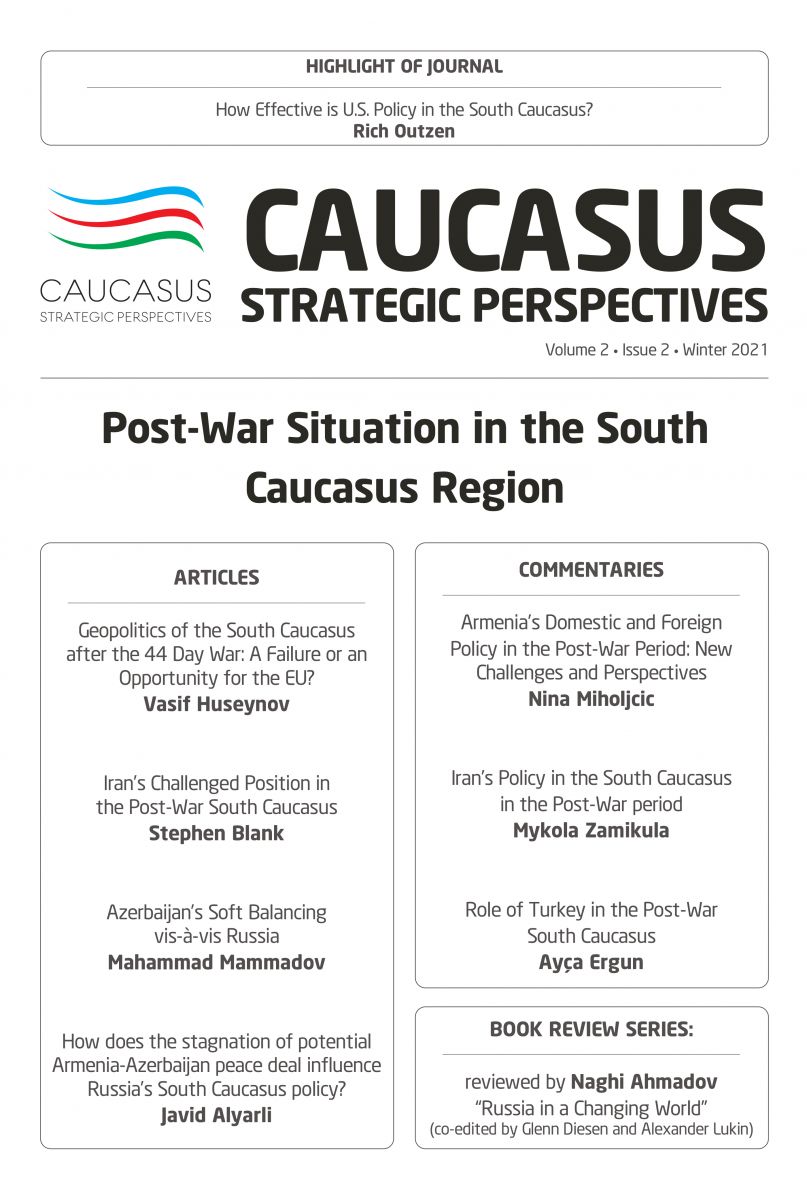Geopolitics of the South Caucasus after the 44 Day War: A Failure or an Opportunity for the EU?
A new geopolitical order emerged in the South Caucasus following the 44 Day War between Armenia and Azerbaijan in late 2020. Upending the former status quo, the war brought in Turkey as an active player in the regional power games but also reinforced Russia’s military standing in the South Caucasus. Concurrently, as a result of the war, the South Caucasus experienced a further decline of Western influence over its regional affairs. The European Union (EU) found it difficult to impact the regional politics – both during the war and afterwards. The EU was thus widely criticized for failing to play an assertive international role even in a region very close to its borders, in contrast to the geopolitical aspirations of the incumbent European Commission. Although the new geopolitical order formed by the war in the South Caucasus promises to be more sustainable and peaceful, there are myriad factors that might undermine regional peace and lead to new armed escalations. The EU does not have a military presence in the region, unlike Turkey and Russia, to play an impactful security role; however, this article argues that it still has some options to become influential, help the region’s countries more confidently counter security challenges, and meaningfully contribute to regional peace and stability. Analysing how the EU could adjust its policies toward the South Caucasus to the post-war regional realities, the article suggests a set of policy recommendations for the EU’s foreign policy apparatus and the leading member states that are more actively engaged with the countries of the region.
Latest news
- 12/27/2024 Call for Submissions-Caucasus Strategic Perspectives, Volume 6, Issue 1, Summer 2025 668 views
Popular articles
- 07/18/2022 The Russia–Ukraine War: Perspective of Azerbaijan 4325 views
- 10/14/2020 The Non-Aligned Movement: In Pursuit of Validity and Relevance in the Contemporary Global Order 3307 views
- 10/14/2020 Vicious Circle of the South Caucasus: Intra-Regional Conflicts and Geopolitical Heterogeneity 3291 views
- 10/14/2020 Relevance of Non-Alignment for Azerbaijan’s Foreign and Security Policy 3020 views





